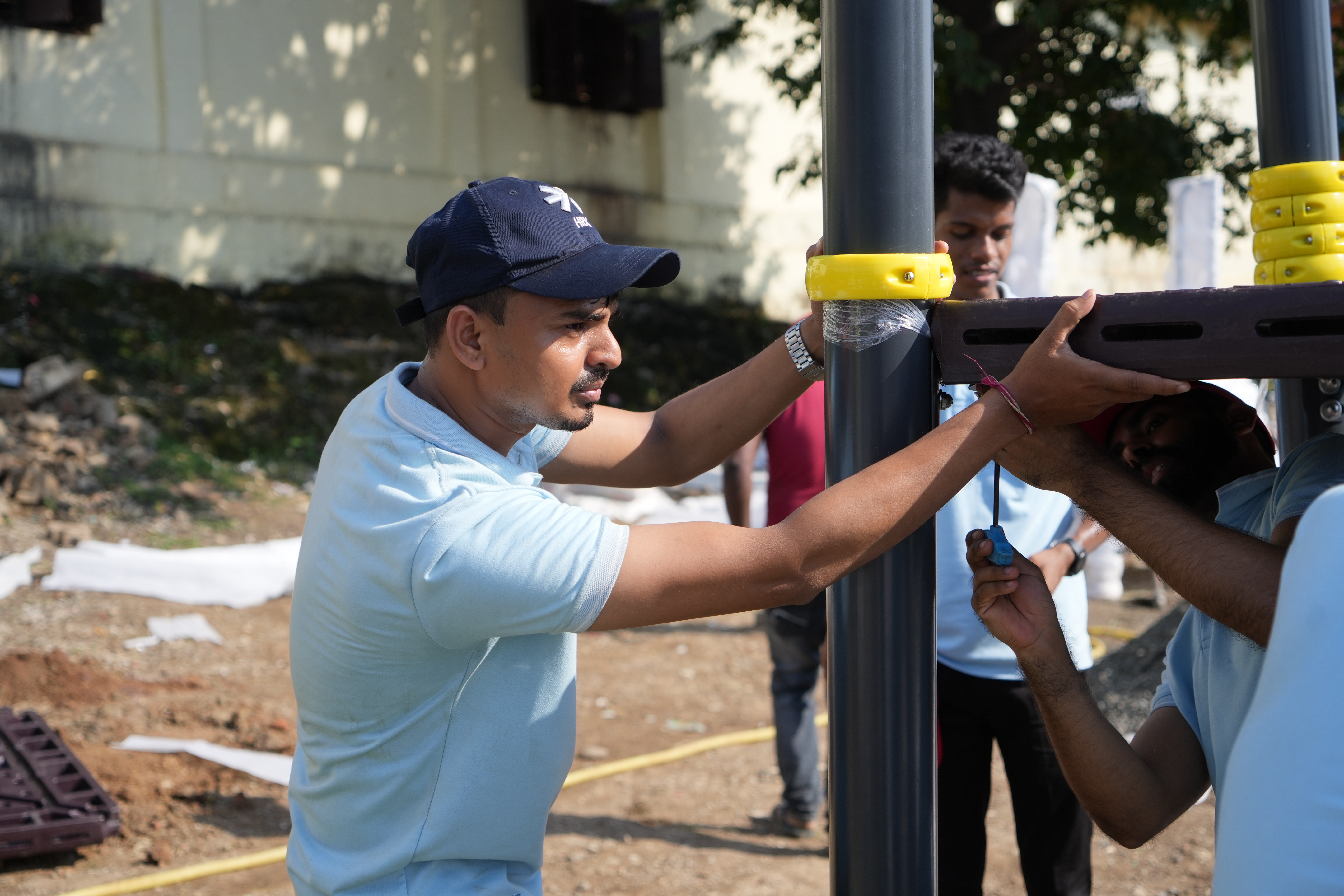Play-based learning is revolutionizing
education in India. By integrating play with academics, schools
can foster creativity, critical thinking, and social skills. In
this article, FunPlay Systems explores the benefits of
play-based learning, real examples, and how schools can
implement it for holistic child development.
Learn more About Us |
Products |
Projects |
FAQs |
Gallery
What is Play-Based Learning?
Play-based learning means using fun games and activities to teach important lessons. Children learn while playing with toys, blocks, puzzles, or even during outdoor games and role-playing. It’s not just about fun—it helps build real skills like thinking, problem-solving, speaking, and working together.
Why It Works
Children are naturally curious. They enjoy exploring, asking questions, and trying new things. When learning feels like play, kids stay excited and engaged. Here’s why play-based learning is powerful:
- Improves focus and creativity: Children learn better when they enjoy what they’re doing.
- Boosts brain development: Playing helps children understand ideas by using their senses and imagination.
- Builds communication skills: Talking with friends during play teaches teamwork, sharing, and empathy.
- Encourages hands-on learning: Kids learn by doing—not just by reading or listening.

The Problem with Traditional Learning
In many Indian schools, the focus is still on memorizing facts and scoring marks. Classrooms are crowded, and there’s little time for play. Teachers often have to follow strict schedules. This kind of learning can make children bored or stressed—and they may forget what they memorized soon after exams.
Also, many children in rural or low-income areas don’t have toys or safe play spaces, which makes it harder for them to learn through play.
How India Can Make the Change
To make education better for every child, India can do a few things:
- Add play-based methods in schools: Use games, art, music, and outdoor activities in daily lessons.
- Train teachers: Teach teachers to use fun and creative ways to teach math, science, and language.
- Create learning spaces: Build playgrounds, libraries, and activity corners in schools.
- Use local stories and materials: Help children connect learning with their everyday lives.
- Include all children: Ensure all children, including those with disabilities, are included in these learning activities.
Real Examples of Play-Based Learning in Action
Organizations like Anthill Creations and The Better India are already working to build playful spaces in schools and communities using recycled materials. Some schools in India are now using games to teach counting, nature walks to explain science, and group stories to improve reading.
These small changes are creating big results. Children are more confident, happy, and eager to learn.
Conclusion: Let Kids Be Kids
Education should not be about stress or fear—it should be about growth, joy, and discovery. Play-based learning makes school fun and meaningful. If we give children the chance to learn through play, we don’t just teach them facts—we prepare them for life.
Let’s support a future where every child in India learns, plays, and grows—together.
How FunPlay Supports Play-Based Learning
- Custom Play Solutions: FunPlay designs age-appropriate, safe, and engaging playground equipment for all school sizes and budgets.
- Inclusive Playgrounds: Our equipment is accessible and inclusive, supporting children of all abilities.
- Teacher Resources: We provide guidance and resources to help schools integrate play-based learning into daily routines.
- End-to-End Service: From design to installation and after-sales support, FunPlay is your partner in holistic education.
Ready to transform your school with play-based learning? Contact FunPlay Systems for a custom playground consultation.
Discover more about our playground equipment and see our latest projects across India.